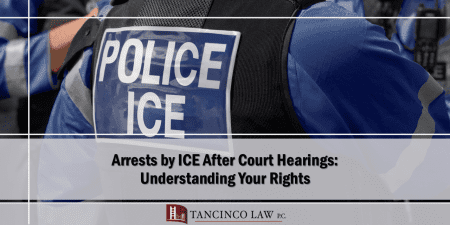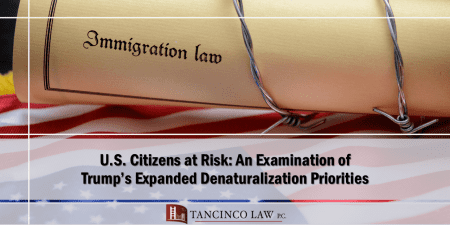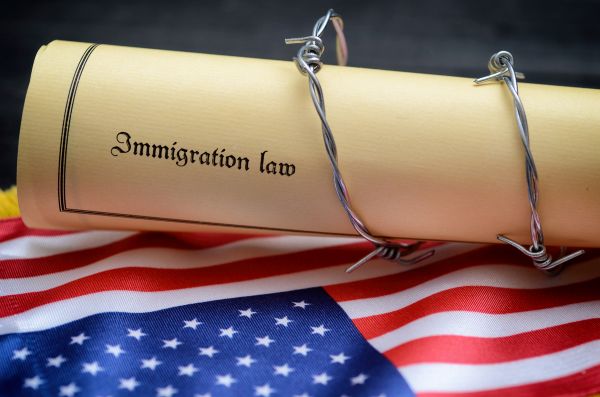
We’ve been hearing alarming reports from immigration courthouses across the U.S. Individuals are being arrested by immigration officers, even after an Immigration Judge has dismissed their cases. Many, especially those who diligently follow the law and exercise their constitutional rights to a hearing, are understandably confused as to why they’re being arrested after their cases were dismissed. Let’s shed some light on this confusing and concerning issue.
What’s Happening and Why
When an Immigration Judge dismisses your case, it usually means your case is no longer active in court. This might seem like a positive outcome. However, it’s crucial to understand: a dismissal from immigration court does not automatically mean you have legal status in the U.S. It simply signifies that the court has closed your particular removal (deportation) proceeding. The underlying issue of your immigration status may still remain unresolved.
These arrests are a result of a recent strategy by U.S. Immigration and Customs Enforcement (ICE). In many instances, government attorneys are actually asking the judge to dismiss cases, particularly for individuals who may have entered the U.S. more recently or who don’t have a clear path to legal status in immigration court.
Their objective isn’t necessarily to let you off the hook. Instead, it’s often to move your case from the formal immigration court system — where you have certain due process rights and a chance to present your case — into a faster deportation process called “Expedited Removal.”
Understanding Expedited Removal
Expedited Removal is a fast-track method for deporting certain individuals who lack legal status. It bypasses the full process before an Immigration Judge. If you are placed in Expedited Removal, you could be detained and deported within days, often with limited access to legal counsel or family support. The only significant exception is if you can quickly and successfully establish a “credible fear” of persecution if you return to your home country.
So, even if your case is dismissed in court, it doesn’t mean ICE has no interest in you. Instead, they are strategically using the dismissal as a stepping stone to a quicker deportation track. This is especially true for those who entered the U.S. within the last two years, but anyone without lawful status could potentially be targeted.
Due Process Rights and the Reality
Many might be thinking, “But don’t we have Due Process rights?” And you are absolutely right! The U.S. Constitution’s Fifth Amendment states that no person shall be deprived of life, liberty, or property without “due process of law.” This applies to all persons in the U.S., not just citizens, including non-citizens. This means you have a right to fair treatment under the law, including the opportunity to be heard and defend yourself in court.
However, these recent tactics by ICE, where they arrest people immediately after a dismissal to place them into Expedited Removal, are being challenged by many legal experts. They argue that this bypasses the very due process protections that the immigration court system is supposed to provide. It also creates a chilling effect, deterring people from even showing up for their court hearings, which would then lead to an automatic deportation order.
What to Do
Given this challenging situation, what’s the best course of action for those who are exercising their due process rights and have upcoming immigration court hearings?
- ALWAYS Consult with an Immigration Attorney BEFORE Your Hearing: This is very important. Even if you’re told your case will be dismissed, it is critical to understand the full implications. Your lawyer can assess your specific situation, explain the risks, and advise you on the best course of action. They can also try to negotiate with the government attorney or even argue against a dismissal if it leads to a worse outcome for you.
- Do NOT Agree to a Dismissal Without Understanding the Risks: Don’t agree to a dismissal of your case if you don’t fully understand its potential consequences. Your lawyer can help you decide if accepting a dismissal is truly in your best interest or if there are other forms of relief you should pursue in court.
- Be Prepared : Talk to your lawyer about what to do if you are detained. Have an emergency plan in place. Make sure someone you trust knows your “A-number” (Alien Registration Number), your lawyer’s contact information, and where your important documents are. While having a lawyer doesn’t prevent arrest, they can advocate for you if you are detained.
- Know Your Basic Rights if Arrested:
- You have the right to remain silent.
- You have the right to speak with an attorney.
- You have the right to contact your consulate.
- Do not sign anything you don’t understand without speaking to a lawyer.
The current situation is challenging and frightening. But knowing your rights and being prepared are your strongest defenses.
(Atty. Lourdes Tancinco is an immigration attorney and immigrant rights advocate based in the San Francisco Bay area and a partner at the Tancinco Law P.C., law firm established since 1992. She is also a producer/host of Pusong Pinoy sa Amerika, an immigration law informational show aired on GMA Pinoy TV. She may be reached at law@tancinco.com, www.tancinco.com, facebook/tancincolaw, or text/call 1-415-397-0808)




